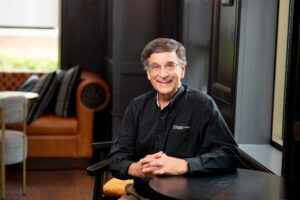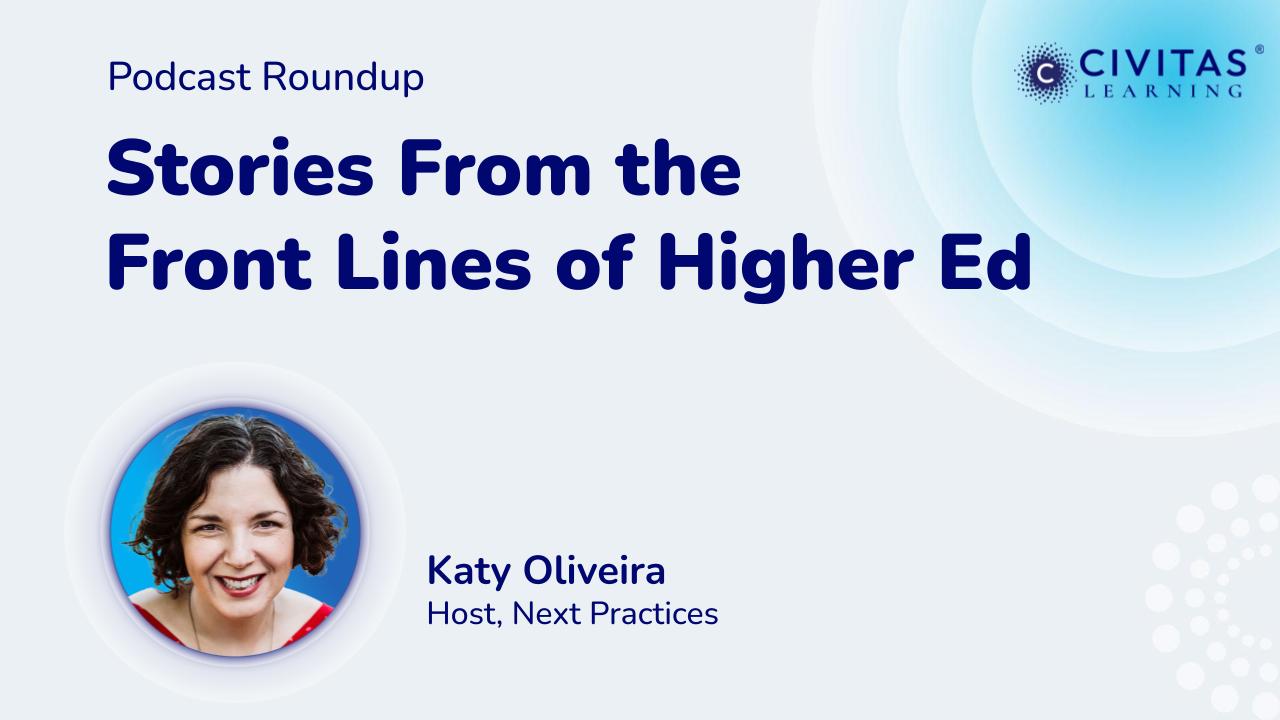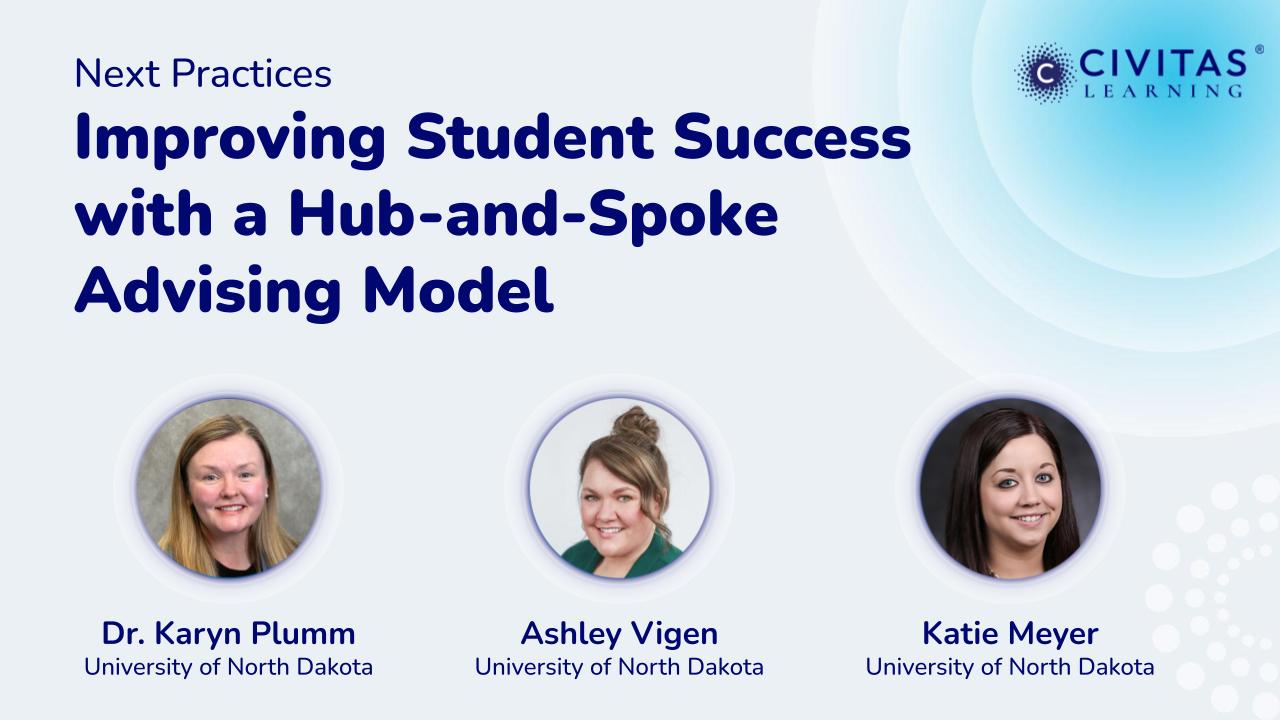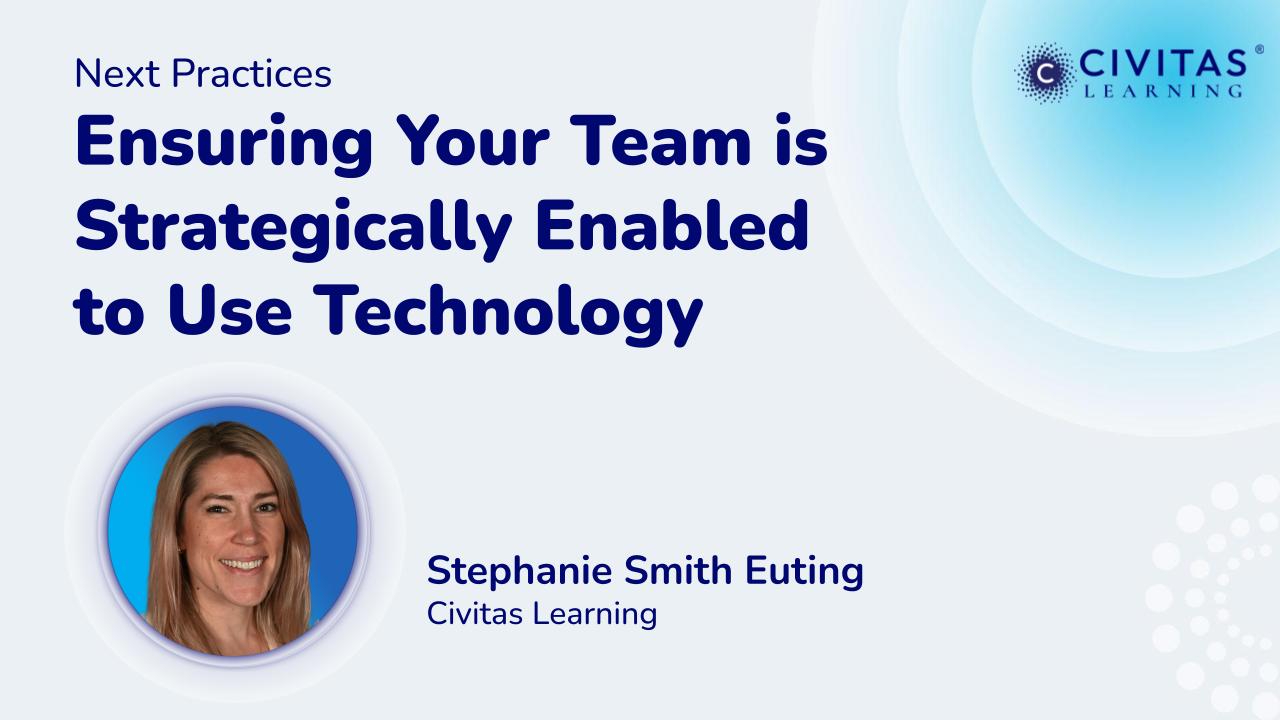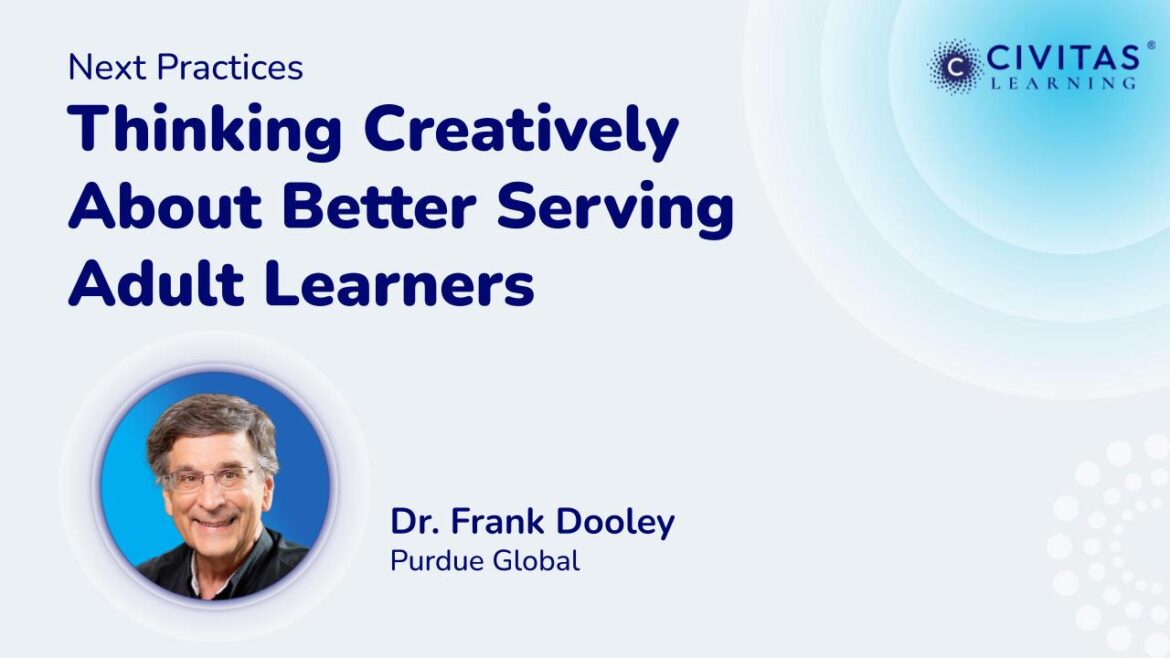
Thinking Creatively About Better Serving Adult Learners with Dr. Frank Dooley
Share this Post
Subscribe: Spotify | Apple Podcasts | Youtube Music | Transcript
At Purdue Global, 38,000 working adults log in after work shifts, school pickups, and military duty—not in spite of their life experience, but because that experience is honored as real academic currency.
In this Next Practices episode, Dr. Frank Dooley, Chancellor Emeritus of Purdue Global, shares how his team is rewriting policies, redesigning systems, and reshaping mindsets to meet learners where they are.
From awarding credit for prior learning to designing neurodiverse-friendly courses and employer-driven pathways, Dooley offers a pragmatic, scalable vision for the future of higher education.
Keep It Simple. Lead with Trust.
One of Dr. Dooley’s guiding principles? Simplicity. He believes the most impactful innovations aren’t the most complicated, they’re the most usable. From how advisors interact with data to how students navigate support services, the Purdue Global team is focused on clarity, not complexity.
Trust plays a central role in that equation. “If you’ve earned trust, you’ve earned the right to help,” Dooley shares. That philosophy drives how teams at Purdue Global interact with each other and with students. Data is important, but relationships determine how that data is used.
Design Support Around Students, Not Systems
With a student body made up of nearly 80% working adults, Purdue Global has built its infrastructure around flexibility and care. Dr. Dooley emphasizes that their success depends on designing support models that accommodate the realities of adult learners, without adding unnecessary friction.
He explains how his team proactively identifies and responds to student needs before they escalate. It’s not about nudging every week—it’s about surfacing the right insight at the right time, in a way that feels personal.
Create Systems That Scale Care
What sets Purdue Global apart isn’t just its size, it’s the intentionality behind its growth. By aligning leadership, academic services, and data teams, they’re ensuring that innovation scales without sacrificing empathy. As Dooley puts it, “Technology is a partner. It can’t replace the human touch, but it can make that touch stronger, smarter, and more timely.”
Listen to the Full Episode
Hear Dr. Dooley’s full perspective on building a culture of shared accountability, the role of humility in leadership, and how higher ed institutions can act more like learning organizations—curious, responsive, and always evolving.
Links and Resources:
